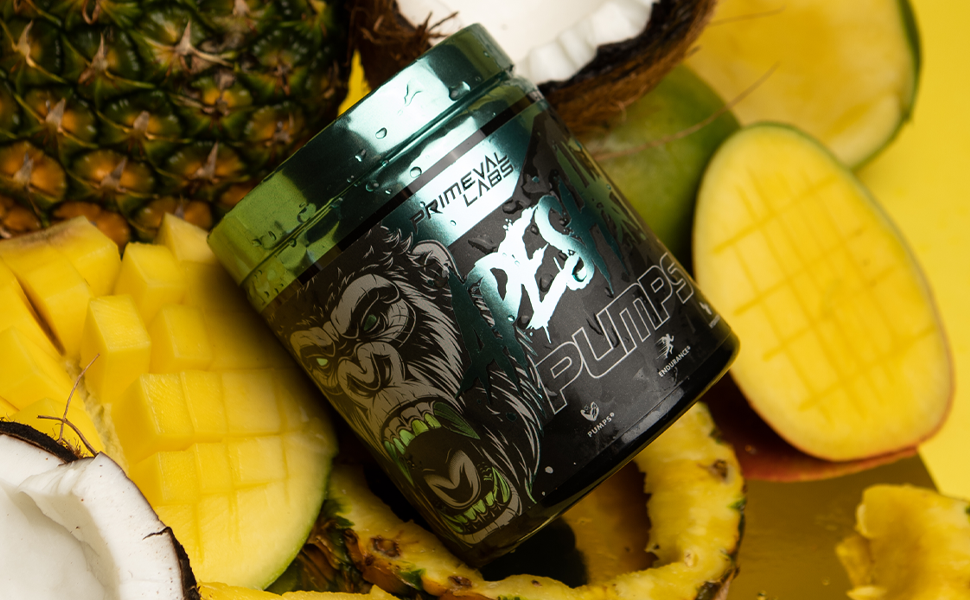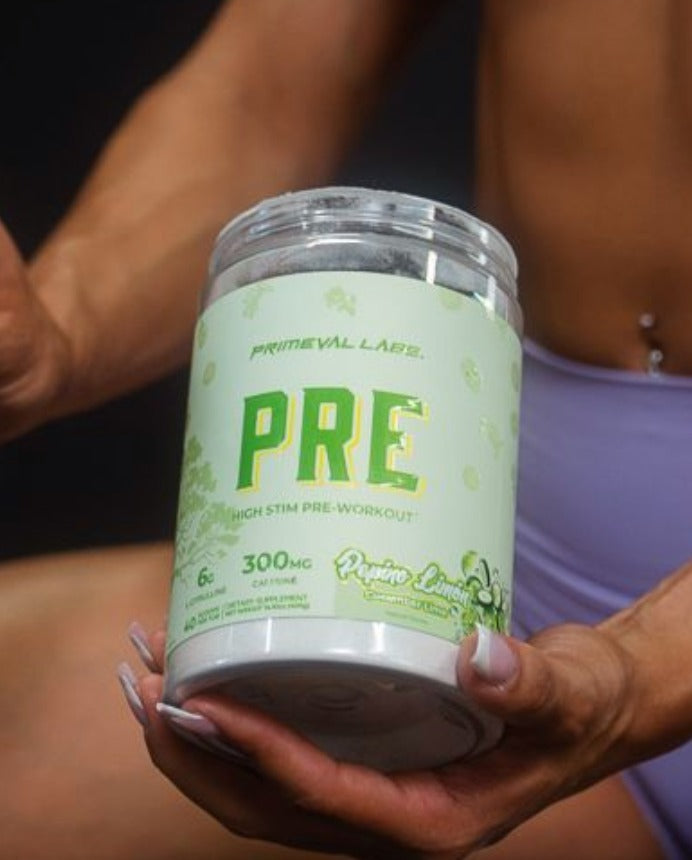If you want to know whether or not carbohydrates can help you build muscle and if you should include them in a bodybuilding diet plan, you want to read this article.
Carbs spike insulin.
Carbs raise blood sugar.
Carbs cause diabetes.
Carbs make you fat.
No doubt you’ve heard much of this same rhetoric from the low-carb community.
Carbohydrates, once thought to be a cornerstone of our diet, have been bludgeoned to death for much of the past decade by keto and paleo dieters. The unfortunate side effect of this propaganda campaign is that some incredibly healthy foods have been deemed unhealthy, and are therefore off-limits.
What’s lost in this rhetoric is the concept that eating too much food in general leads to fat gain and poor health, not carbohydrates.
When looking closer at carbohydrates, you’ll see not only that not only do they not inherently cause weight gain, but they can actually help you perform better in your workouts and build more muscle!
We’re going to show you exactly how carbs support muscle growth as well as why they belong in every bodybuilding diet plan, but first, let’s begin by discussing some basics regarding carbohydrates. Namely...
What are Carbohydrates?
Carbohydrates, or “carbs” for short, are molecules composed of carbon, hydrogen and oxygen atoms.
In the world of nutrition and dieting,, carbohydrates are one of the three main macronutrients, with protein and fat being the other two.
Dietary carbohydrates can be grouped into one of three main categories:
-
Starch: long chains of glucose molecules, which are subsequently broken down during the digestion process into glucose. Starches are also classified as “complex” carbohydrates due Examples include pasta, rice, potatoes, and corn.
-
Sugar: short chains of carbohydrates with a sweet taste. Examples include glucose, fructose, galactose and sucrose. FYI, these are typically called “simple carbs.”
-
Fiber: The indigestible portion of plants that serve as “food” for the bacteria in our gut. Examples include cellulose, lignin, and pectin
Simple vs Complex Carbohydrates
When discussing carbohydrates in the diet, they’re typically classified as either simple or complex.
“Simple” carbohydrates are carbs that can be quickly and easily broken down by the body. As mentioned above, simple carbs are typically sugars or highly refined carbohydrates.
“Complex” carbohydrates are carbs that take longer for your body to digest, due to the fact that they contain longer chains of glucose (i.e. starches) as well as fiber.
In general, you want the majority of your carbohydrate intake to come from nutrient-rich complex carbohydrates.
Complex carbs tend to be higher in essential vitamins and minerals than simple carbs, and they also provide a more sustained release of glucose into the bloodstream than simple carbs, which don’t have the fiber or molecular structure to prevent the rapid digestion and ensuing insulin spike.
What Do Carbohydrates Do?
The main purpose of carbohydrates in the diet is to provide energy to our cells. That “energy” comes in the form of glucose -- the preferred fuel source for our cells. Carbohydrates can also help regulate blood sugar, feed our gut bacteria (which boosts immunity), and support calcium absorption and cognition.
All carbohydrates, regardless of how complex or simple they may be, are broken down into glucose. A small portion of dietary carbohydrates is also broken down into fructose, which is used by the liver.
Fructose can also be converted to glucose (and subsequently glycogen) or lactate.[1] Any fructose not used by the liver or converted into glucose or lactate is typically converted to triglycerides and stored as fat.
Following digestion, glucose is absorbed by the intestines and transported into the bloodstream. There, a portion of the glucose is utilized for energy. Whatever isn’t immediately needed for energy production is stored in the muscles and liver as glycogen.
What is Glycogen?
Glycogen is a form of potential energy that is stored in our muscles and liver to provide energy to your body when blood glucose is low. Following a meal, typically 4-6 hours after you eat, blood sugar levels decrease, which stimulates your pancreas to produce the hormone glucagon.
Glucagon signals your muscles cells and liver to convert stored glycogen back into glucose, and then release it into your bloodstream so that other cells in your body can use it for energy.
In addition to helping maintain steady blood sugar levels, glycogen also serves as one of our primary energy sources during exercise, whether it be an aerobic (“cardio) or anaerobic (weightlifting, sprinting, etc.) in nature.[4]
As such, it would make sense that the more glycogen that is stored in your muscles, the better your workout performance will be. Research has confirmed this, too.[2,3]
The opposite holds true as well. When muscle glycogen stores are low, athletic performance decreases and your perception of fatigue and rate of exhaustion increases.
In other words, if you want to perform at your best, you need glycogen.
And it’s here that we can begin to really answer the question of how carbohydrates help build muscle.
How Carbohydrates Help Build Muscle Fast
Muscle growth occurs when the rate of muscle protein synthesis exceeds the rate of muscle protein breakdown over a long period of time.
While carbohydrates don’t directly build muscle, they do indirectly enhance the muscle building process through a number of means, including:
Carbohydrates Increase Glycogen Levels
The main driver of hypertrophy, a.k.a. muscle growth, is progressive tension overload.
In layman’s terms, in order to build muscle, you need to expose your muscles to greater amounts of tension over time.
The easiest way to do this is typically by lifting more weight on your compound lifts.
With higher levels of muscle glycogen, you’re able to train harder for longer periods of time and lift more weight, which as we just stated is the primary driver of muscle building.
The way to increase levels of muscle glycogen is by eating carbohydrates.
Here, you can see that carbohydrates, at least indirectly, build muscle.
Carbohydrates Spare Muscle Protein
While it’s often thought that lifting weights builds muscle, intense exercise actually damages and breaks down muscle fibers. It’s during the hours and days after training that the repair, recovery and growth process takes place.
Muscle glycogen has been shown to reduce protein breakdown. In fact, studies note that nitrogen losses (a marker of protein breakdown) are more than doubled in a glycogen-depleted muscle versus a glycogen-filled muscle.[6]
Other research has noted an inverse relationship between glycogen levels and protein breakdown, meaning that higher levels of glycogen are associated with decreases levels of protein degradation.[7]
Furthermore, glycogen levels serves as one of the key signals for the AMPK/mTOR pathway. AMPK (5'-adenosine monophosphate-activated protein kinase) is an energy regulator that affects energy expenditure and food intake in response to various hormones and nutrient signalling.[8]
mTOR (Mammalian target of rapamycin) is one of several downstream targets of AMPK functions that regulates protein synthesis, cell growth, and metabolism.
Low glycogen levels lead to an up-regulation of AMPK and down-regulation of mTOR, while higher glycogen result in the opposite (increased mTOR and decreased AMPK). When energy levels are low, AMPK senses this and up-regulates catabolic processes in the body, which involves the breakdown of glycogen, muscle tissue, or stored fatty acids to meet its energy requirements.
Conversely, when energy levels are high, AMPK activity is down-regulated, which prompts an up-regulation of mTOR and subsequently an increase in protein synthesis.
Carbohydrate and glycogen content also impacts a number of other physiological factors including Akt phosphorylation.
And, in studies where glycogen was inhibited, S6K activation, translation, and the amount of mRNA of genes responsible for controlling muscle growth were reduced.[15,16]
Again, this is not something you want if you’re trying to build as much muscle as possible.
As we noted at the outset, muscle growth occurs when muscle protein synthesis exceeds protein breakdown. So, anything that tips the balance of the scale in favor of muscle protein synthesis is a very good thing.
By reducing protein breakdown, glycogen (stored carbohydrates) help build muscle.
Carbohydrates Improve Recovery
Your ability to recover directly impacts your ability to build muscle. If you train so intensely that you’re sore for days on end and can’t train, you’re limiting your training frequency, intensity, and ultimately your ability to put on muscle.
The quicker you recover, the more frequently you can train. The more training sessions you can complete typically equates with more work done and more weight lifted, which as we noted above, is one of the principal drivers of muscle growth.
Consuming carbohydrates post workout has been noted to promote glycogen replenishment, accelerate the recovery process, and reduce delayed onset muscle soreness.
Research also notes consuming post workout carbohydrates increases insulin levels, and subsequently, protein synthesis by 36% compared to exercise alone.[17]
Additionally, urinary nitrogen (a key marker associated with muscle breakdown) levels are significantly lower when carbs are consumed following exercise. Again, tipping the scale in favor of muscle growth.
Post Workout Carbs Boost Protein Synthesis
When carbohydrates are paired with a protein (such as Primeval Labs ISOLIT) post workout, studies have documented an increased amount of protein synthesis when compared to a meal containing only carbohydrates.[18]
A separate study confirmed these findings when it was documented that a complete meal (i.e. proteins + carbs) eaten post workout stimulates mRNA translation.[19] In case you weren’t aware, mRNA translation is critically important for protein synthesis.
Drawbacks of a Low-Carbohydrate Diet
Low carb diets deplete glycogen stores, and research has noted that low levels of glycogen are associated with reduced performance and signs of overtraining.[9]
To make matters worse, low carb diets also increase cortisol levels and reduce testosterone levels, neither of which is good for building muscle.[10]
Additionally, low carb diets reduce insulin levels. While insulin has been heavily demonized by the low carb movement, it’s actually vitally important for shuttling nutrients into your muscles cells, which supports recovery and growth.
Furthermore, insulin also exerts powerful anti-catabolic properties, meaning that it helps reduce the rate of muscle protein breakdown.[11,12,13]
Again, anything that reduces protein breakdown or increases protein synthesis is what you want for muscle building.
Eating carbohydrates increases insulin levels, which limits protein breakdown, indirectly supporting muscle growth.
Furthermore, low-carb diets typically leave your muscles looking “flat” and rather unimpressive looking. Higher carb diets ensure full glycogen stores, which give your muscles a rounder, fuller, and more shapely look.
Eat Carbs for Muscle Growth
Suffice it to say, that if you want to perform at your best and build as much muscle as quickly as possible, then you want to eat carbohydrates. Through their combination of increasing athletic performance, enhancing protein synthesis, and reducing protein breakdown, carbohydrates belong in any muscle building diet.
And, if you’re looking for the ultimate performance-boosting carbohydrate supplement, Primeval Labs offers Intracell 7.
Intracell is a primetime intra workout fuel that supplies 20 grams of fast-digesting, high-performance carbohydrates alongside a full complement of essential amino acids, hydration agents, and blood flow support nutrients.
Used intra workout, Intracell 7 supports energy production, aids athletic performance, helps combat fatigue, and fuels muscle pumps. It also tastes delicious and provides your muscles with the nutrients they need when they need it most.
Click here to learn more about Intracell 7 and how it can help you build more muscle.
References
-
Ter Horst KW, Serlie MJ. Fructose Consumption, Lipogenesis, and Non-Alcoholic Fatty Liver Disease. Nutrients. 2017;9(9):981. doi:10.3390/nu9090981.
-
Coyle, E. F. (1995). Substrate utilization during exercise in active people. The American Journal of Clinical Nutrition, 61(4 Suppl), 968S–979S. https://doi.org/10.1093/ajcn/61.4.968S
-
Miller, S. L., & Wolfe, R. R. (1999). Physical exercise as a modulator of adaptation to low and high carbohydrate and low and high fat intakes. European Journal of Clinical Nutrition, 53 Suppl 1, S112-9.
-
Ivy JL. Regulation of Muscle Glycogen Repletion, Muscle Protein Synthesis and Repair Following Exercise. Journal of Sports Science & Medicine. 2004;3(3):131-138.
-
Lemon PW, Mullin JP. Effect of initial muscle glycogen levels on protein catabolism during exercise. J Appl Physiol. 1980;48(4):624–9.
-
Blomstrand E, Saltin B, Blomstrand E, Saltin B. Effect of muscle glycogen on glucose, lactate and amino acid metabolism during exercise and recovery in human subjects. J Physiol. 1999;514(1):293–302. doi: 10.1111/j.1469-7793.1999.293af.x
-
Xu, J., Ji, J., & Yan, X.-H. (2012). Cross-talk between AMPK and mTOR in regulating energy balance. Critical Reviews in Food Science and Nutrition, 52(5), 373–381. https://doi.org/10.1080/10408398.2010.500245
-
Lane, A. R., Duke, J. W., & Hackney, A. C. (2010). Influence of dietary carbohydrate intake on the free testosterone: cortisol ratio responses to short-term intensive exercise training. European Journal of Applied Physiology, 108(6), 1125–1131. https://doi.org/10.1007/s00421-009-1220-5
-
Abdulla, H., Smith, K., Atherton, P. J., & Idris, I. (2016). Role of insulin in the regulation of human skeletal muscle protein synthesis and breakdown: a systematic review and meta-analysis. Diabetologia, 59(1), 44–55. https://doi.org/10.1007/s00125-015-3751-0
-
Aragon AA, Schoenfeld BJ. Nutrient timing revisited: is there a post-exercise anabolic window? Journal of the International Society of Sports Nutrition. 2013;10:5. doi:10.1186/1550-2783-10-5.
-
Churchley EG, Coffey VG, Pedersen DJ, Shield A, Carey KA, Cameron-Smith D, Hawley JA. Influence of preexercise muscle glycogen content on transcriptional activity of metabolic and myogenic genes in well-trained humans. J Appl Physiol. 2007;102(4):1604–11.
-
Dennis PB, Jaeschke A, Saitoh M, Fowler B, Kozma SC, Thomas G. Mammalian TOR: a homeostatic ATP sensor. Science. 2001;294(5544):1102–5. doi: 10.1126/science.1063518.
-
Tarnopolsky, M. A., Bosman, M., Macdonald, J. R., Vandeputte, D., Martin, J., & Roy, B. D. (1997). Postexercise protein-carbohydrate and carbohydrate supplements increase muscle glycogen in men and women. Journal of Applied Physiology, 83(6), 1877-1883. doi:10.1152/jappl.1997.83.6.1877
-
Levenhagen, D. K., Carr, C., Carlson, M. G., Maron, D. J., Borel, M. J., & Flakoll, P. J. (2002). Postexercise protein intake enhances whole-body and leg protein accretion in humans. Medicine & Science in Sports & Exercise, 34(5), 828-837. doi:10.1097/00005768-200205000-00016
-
Gautsch, T. A., Anthony, J. C., Kimball, S. R., Paul, G. L., Layman, D. K., & Jefferson, L. S. (1998). Availability of eIF4E regulates skeletal muscle protein synthesis during recovery from exercise. American Journal of Physiology-Cell Physiology, 274(2). doi:10.1152/ajpcell.1998.274.2.c406













Leave a comment
This site is protected by hCaptcha and the hCaptcha Privacy Policy and Terms of Service apply.